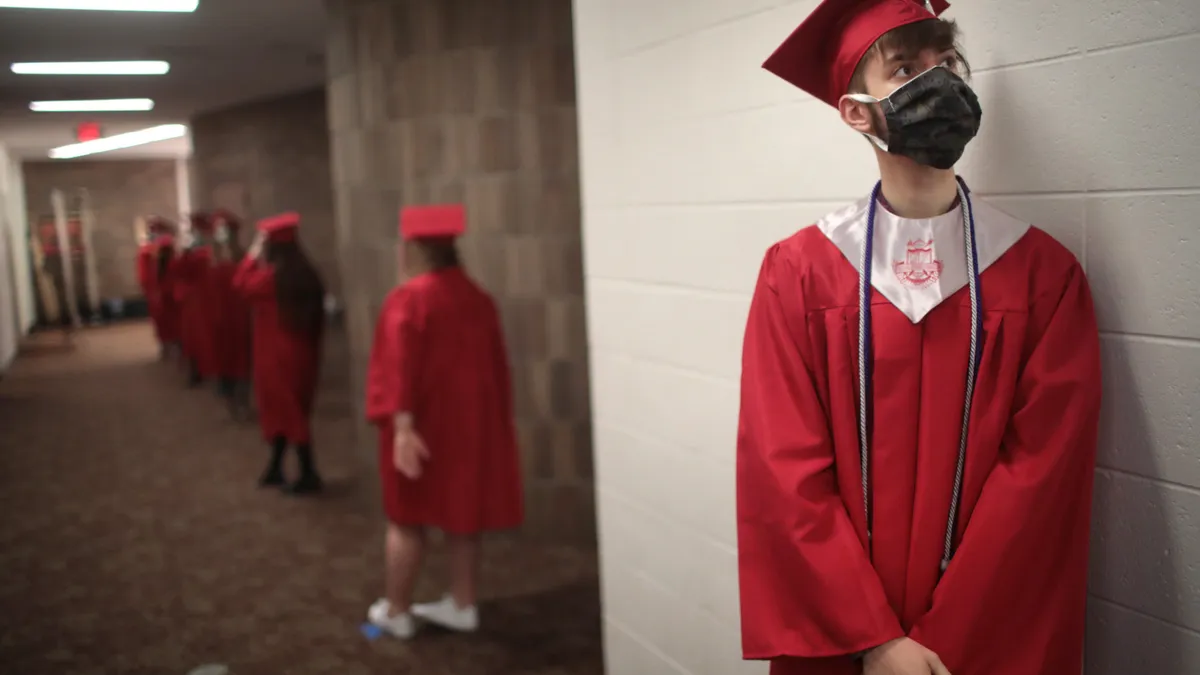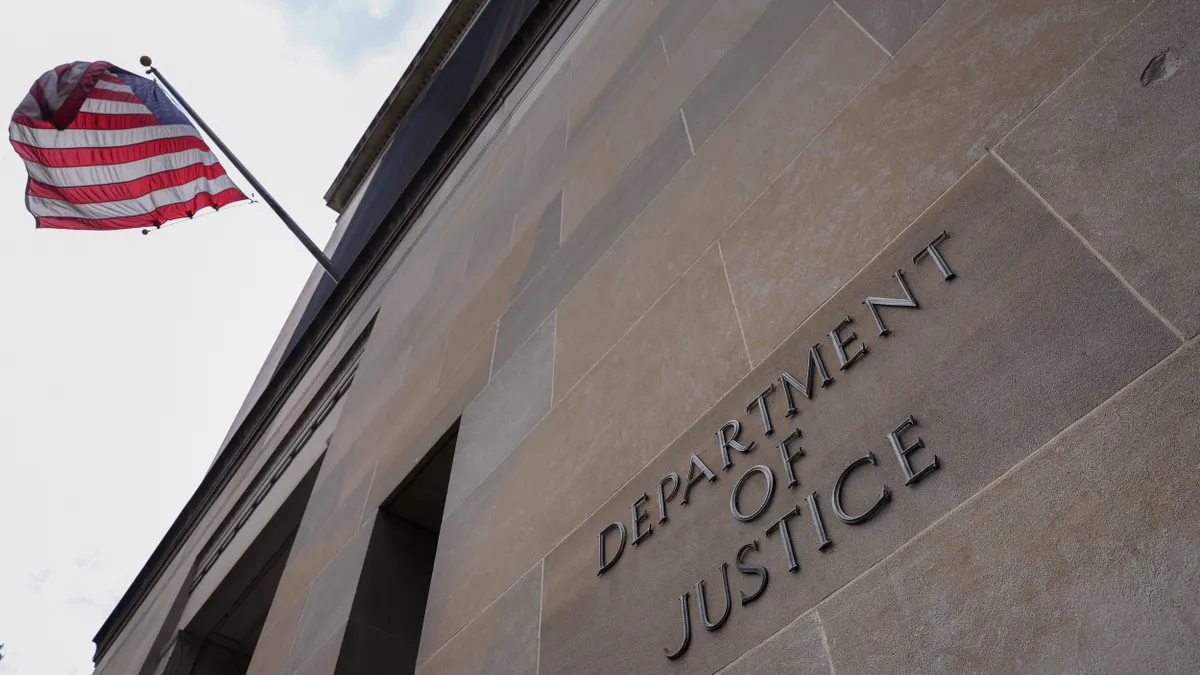Though some school systems, like New York City, remain cautious of hosting events like prom, many school leaders are optimistic the class of 2021 will have an opportunity to participate in that and other traditional senior milestone activities as state leaders increase gathering limits.
In Bridgeton, New Jersey, Cumberland Regional High School Principal Ralph Aiello is “hoping against hope” that his 220 graduating seniors will have a formal graduation ceremony this spring. He is anxiously awaiting Gov. Phil Murphy’s decision on increasing capacity limits to finalize logistics.
“It’s frustrating as a principal, because I want to give as much as I can to the kids,” he said.
Aiello is moving ahead with plans for an outdoor ceremony on the school’s athletic field. Prior to COVID-19, the school held graduation outdoors and only moved indoors for inclement weather. If the weather doesn’t cooperate this year, the district has set a rain date instead. Work has already begun on fiber-optic installation to provide a direct connection and guarantee high-quality streaming.
“The first major thing I do is make sure I have board support for whatever I’m planning,” he said. “I started talking with them a few months before and laid out a plan with a diagram. I even had some of my math teachers out there measuring the field so we could plan for social distancing.”
Despite the extra work, school leaders are eager to implement creative alternatives so the students and their families have an opportunity to enjoy senior milestones.
Getting buy-in on safety, accommodations
Langley High School in McLean, Virginia, traditionally holds its prom at the historic Andrew W. Mellon Auditorium in Washington, D.C. The facility isn’t hosting events, but Principal Kimberly Greer is making sure her seniors get a prom.
“Three moms proposed hosting the prom in the school’s bus loop,” she said of the planned outdoor event. “They were as excited as teenagers to help our 527 seniors celebrate.”
At press time, social gatherings were limited to 100 attendees in Virginia. To meet state guidelines, students will sign up to attend in shifts of 90, leaving a buffer of 10 for chaperones. School principals faced with similar restrictions are limiting attendance to seniors.
“Normally, when you think about traditional prom planning, you have this little checklist of things that you would do — even for something as simple as food,” she said. “Now we’re having conversations about how we package food, and which songs to play so it doesn’t encourage kids to dance too closely.”
Greer has an advantage — she is also the parent of a senior and knows the value of parent input. While her parent community is actively engaged, she believes every school has parents interested in contributing and that it is a matter of finding them and inviting them into the process.
“The one thing you need to think about is tempering their desires and expectations, because at the end of the day, we are also talking dollars and cents,” she said. “You have to have open communication so that they not only understand what is and isn’t possible, but why.”
Taking the time to explain the decision has also been critical for the school’s graduation ceremony. It will be held in an outdoor, covered concert venue with a seating capacity of 10,000, allowing plenty of room for social distancing. The venue is 20 to 25 miles from the community, and questions about the distance arose.
“When I explained that it would be able to accommodate more spectators so more families could take part in the celebration, people appreciated that,” she said. “They wouldn’t have known that piece had I not taken the time to communicate.”
Embracing creative solutions
In Alaska, Chief Ivan Blunka School Assistant Principal Meghan Redmond is accustomed to being flexible and looking for creative alternatives. Geographically, it is something locals must do, as accessibility is limited and shipping challenges are a way of life.
The pre-K-12 school is located off the road system in the Alaska village of New Stuyahok. Eight villages are part of the Southwest Region Schools; none are connected by roads. This natural ruggedness gives the district an advantage for embracing creative solutions, according to Redmond.
“The biggest struggle for me is the ‘wait and see’-ing that we have had to do,” she said. “We are never really sure what the exact situation is going to be very far in advance, so we have had to do a lot of contingency planning and waiting longer than usual to make decisions and plans.”
Redmond gathered feedback from class members, their families, school staff, local health experts and the school board before creating celebratory plans. Prom details are still being finalized, but a traditional graduation with some modifications is a go. Guests are limited and health screening is mandatory for each attendee. All participants must follow the local self-quarantine policy. If they leave the region 10 days prior to graduation, they are unable to attend.
“For me, doing nothing is never an option,” she said. “We may not be able to do exactly what we have always done, but that doesn’t mean that what we do this year won’t be just as special. Remembering that everyone had an adverse experience related to COVID-19 and are processing the losses in a different way means we need to approach these situations and people with understanding and kindness first.”






 Dive Awards
Dive Awards












